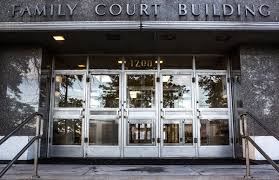Table of Contents
New York has two courts to handle Family Law matters: the Family Court and Supreme Court.
The Family Court cannot issue a divorce or divide the property. Only the Supreme Court can issue a judgment of divorce and handle the division of marital property. Which court you should use depends on your particular circumstances.
When dealing with family law matters in New York, individuals often encounter the terms “Family Court” and “Supreme Court.” It can be confusing to understand the difference between the two and which court has jurisdiction over a specific case. In this blog, we will explain the difference between the New York Family Court and the New York Supreme Court in family law matters to help you navigate the legal system.
New York Family Court
This Court is a specialized court that handles family law matters such as child abuse, neglect, adoption, and juvenile delinquency. It also handles child custody, child support, and spousal support, but NOT divorce cases. It is a court of limited jurisdiction, which means that it can only hear cases that fall within its specific area of authority. It doesn’t handle divorce or the division of property.
The Family Court is designed to provide a less formal and less intimidating environment for families who are dealing with sensitive and emotional legal issues. Judges are trained to handle family law matters and are familiar with the unique legal and social issues that arise in these cases.
One of the primary benefits of the Family Court is that it offers a range of services and resources to help families resolve their disputes. For example, it offers mediation, a process in which a neutral third party helps the parties reach a mutually acceptable agreement. Mediation can be a faster, less expensive, and less stressful way to resolve a family law dispute compared to a trial in court. In fact, people can file their own cases without the need for a lawyer.
Another benefit is that it provides a number of support services to families, such as counseling and referrals to community resources. The Family Court also works closely with social service agencies, such as child protective services, to ensure that children are protected and that their best interests are being served.
New York Supreme Court
The New York Supreme Court is the state’s trial court of general jurisdiction. It hears a wide range of civil and criminal cases, including family law matters. Unlike the Family Court, the Supreme Court has unlimited jurisdiction and can hear any case that falls within its area of authority. Only the Supreme Court can issue a judgment of divorce or divide the marital property.
In family law matters, the Supreme Court hears cases that are too complex or serious to be handled by the Family Court. For example, the Supreme Court may hear cases involving high-stakes child custody disputes, complex financial issues, or allegations of abuse or neglect.
The Supreme Court is a more formal and formalistic environment than the Family Court, and the legal proceedings in the Supreme Court can be more complicated and time-consuming. The judges in the Supreme Court are experienced and well-versed in the law, but they may not be as familiar with the unique legal and social issues that arise in family law matters.
Conclusion
In New York, family law matters can be heard in either the Family Court or the Supreme Court, depending on the nature and complexity of the case. The Family Court is designed to provide a less formal and less intimidating environment for families and offers a range of services and resources to help families resolve their disputes. The Supreme Court is the state’s trial court of general jurisdiction and hears cases that are too complex or serious to be handled by the Family Court.
It is important to understand the difference between the Family Court and the Supreme Court in family law matters and to choose the right court for your case. If you are facing a family law dispute in New York, it is recommended that you consult with a family law attorney to help you navigate the legal system and protect your rights.
Call Port and Sava for a Free 15 Minute Telephone Consultation at (516) 352-2999

